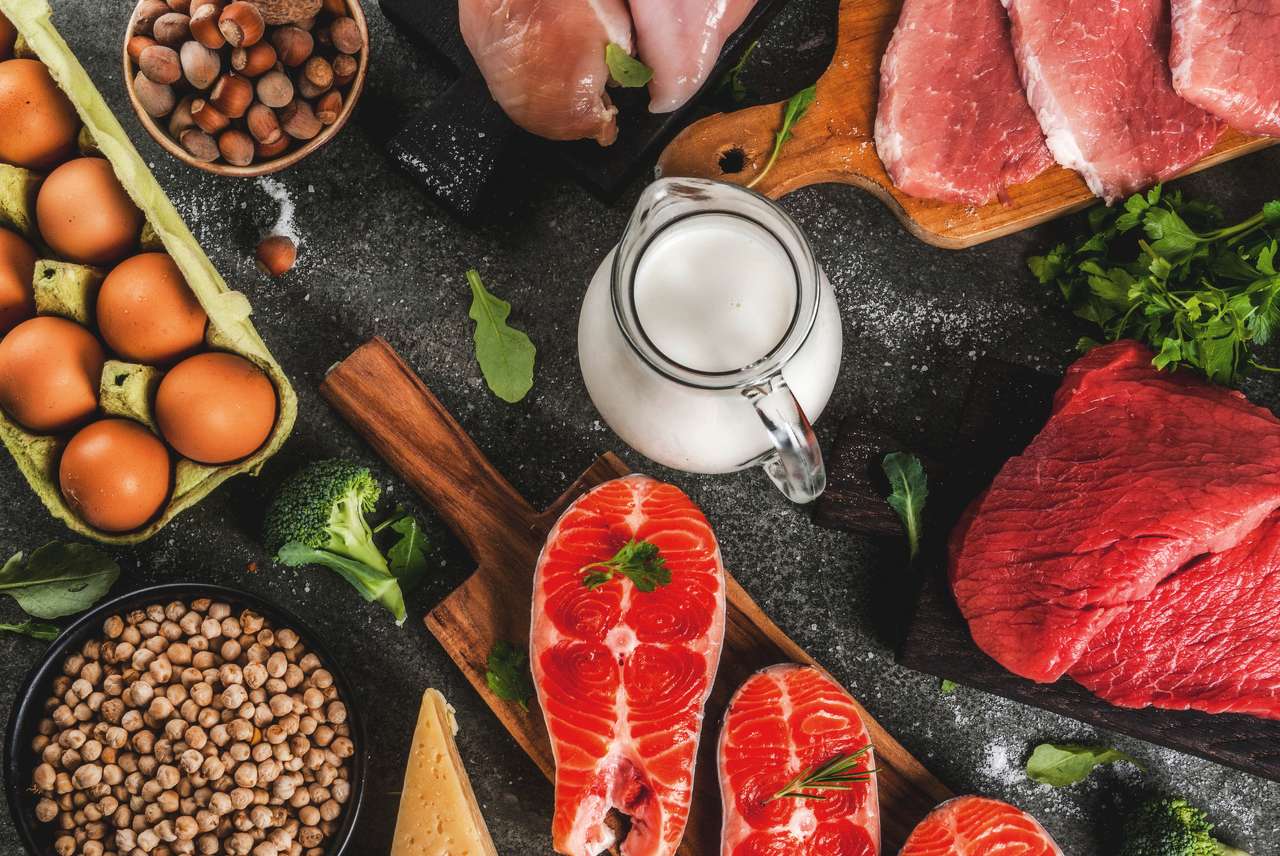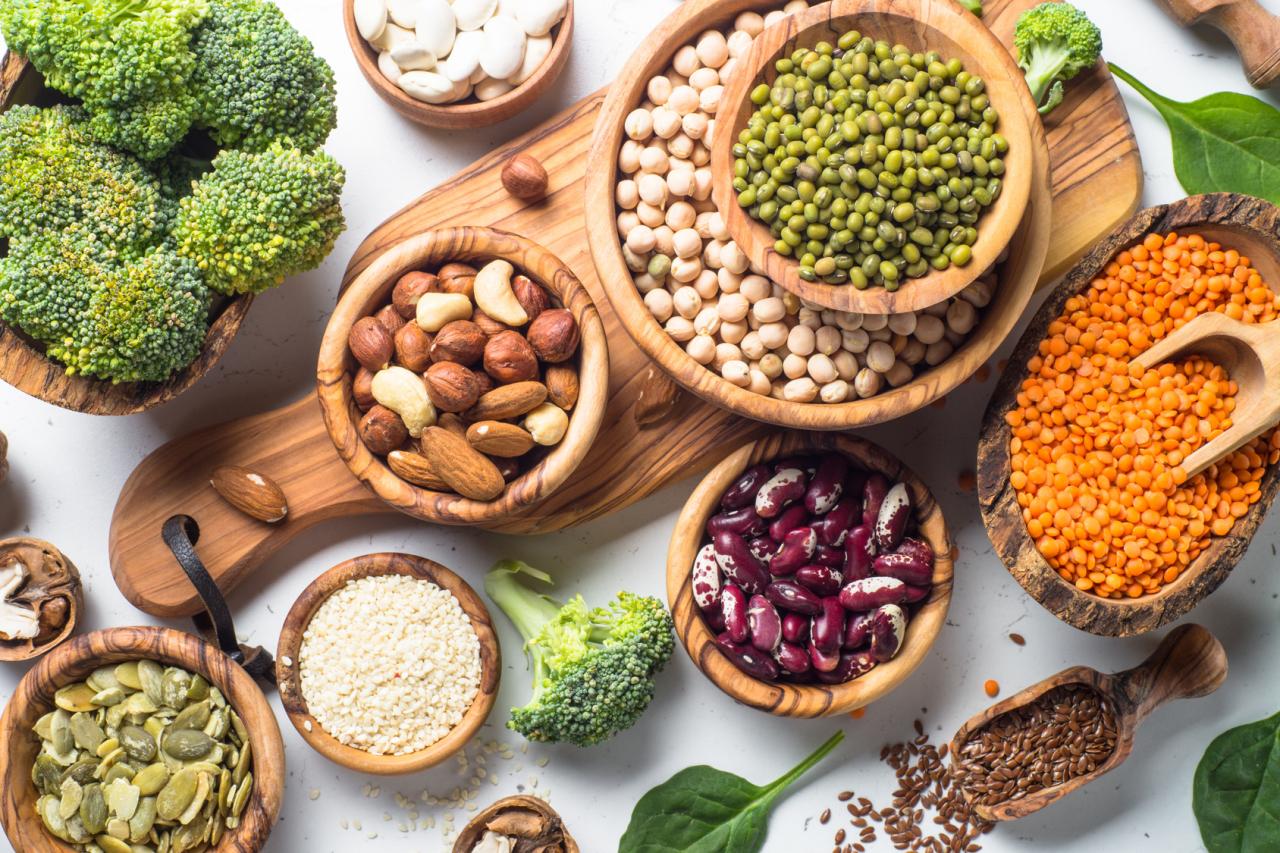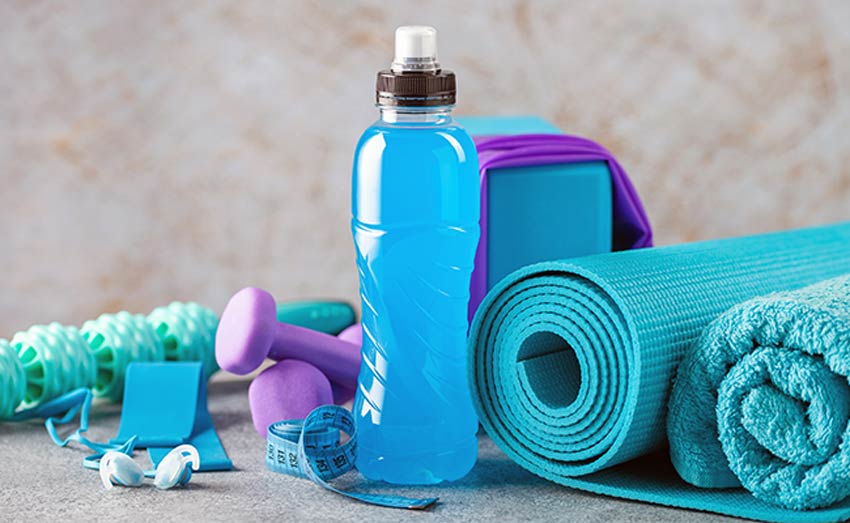THE 12 BEST SOURCES OF PROTEIN
proteins are essential components of the organism which enter into the composition of cells in the form of amino acids . They are also the main building block of muscle. The increased consumption of protein in a diet as a replacement for a part of carbohydrates and fats not only helps to control body fatty tissue, but also to control appetite when dieting or maintaining.
In this article we will discuss the differences between proteins and also talk about the best sources as well as how to consume them correctly.
Concept of complete protein
Having the correct protein intake is important. However, when it comes to talking about the quality of protein provided, we must start by differentiating between complete proteins and incomplete proteins.
You will remember that proteins are made up of amino acids which are used by the human body to keep it functioning overall.
There are 22 so-called proteinogenic amino acids – which can enter into the composition of protein. Nine of them are essential
- Isoleucine
- Valine
- Leucine
- Lysine
- Methionine
- Threonine
- Tryptophan
- Phenylalanine
- Histidine
because the human body cannot manufacture them. Thus the proteins which contain these nine amino acids are said to be complete, while those which do not contain one or more of these amino acids are said to be incomplete. Animal protein contains all of these essential amino acids, and with these amino acids your body can make all the others (called non-essential).
If you are vegan on the other hand and do not consume in addition animal protein, in in this case it is necessary to understand how to provide all of the essential amino acids to your body. For that, it is necessary to combine incomplete proteins to form a complete protein, quite simply. In the next paragraph we will explain how to do this and give specific examples.
Combine incomplete proteins to form a complete protein
The human body needs essential amino acids because it cannot manufacture them – whereas these amino acids are the basis of all body cells and of all metabolic processes. In their absence the deficiency can have harmful consequences on the body, which is why it is necessary to have constant and daily intakes.
We have seen that only animal proteins – with rare exceptions for vegetable proteins – provide the essential set of amino acids, which is why the not consuming it can cause these deficiencies that we have mentioned. In this case – if you do not want or cannot consume animal protein – you have to learn to make combinations of vegetable proteins in order to provide all the amino acids necessary for your body.
The combination of proteins (or protein supplement) is a dietary theory for protein nutrition that allows to optimize the biological value of the intake of protein. Vegetarian and vegan diets can provide insufficient amounts of certain essential amino acids, which makes combining protein with several foods necessary for a complete protein that provides all of the essential amino acids. However, plant protein should not be supplemented with every meal to achieve the desired level of essential amino acids – as long as the diet is varied and the body’s caloric needs are met.
However, it is indeed possible for a person to develop an amino acid deficiency if he has, for example, eaten only rice and in quantities limited to that necessary to respond to needs. To avoid such a deficiency, either a complementary food rich in limiting amino acids (such as legumes rich in lysine, in the case of rice), or quantities of rice greater than those necessary to meet the needs, would be needed. The following combinations give you ideas for effective combinations:
- Nuts or seeds with whole grains (peanut butter on whole wheat toast)
- Whole grains with beans (beans and rice; hummus and pita bread; chili made from beans and crackers; refried beans and tortillas)
- Beans with nuts or seeds (salad of chickpeas and sunflower seeds)
Best sources of complete protein:
We’re going to tell you about 6 Best Animal-Based Foods and 6 Plant-Based Foods that are actually the best sources of protein and amino acids to choose from.
Sources of animal protein

Here are the 6 best animal protein sources to use:
- Chicken breast : this food contains 32 grams of protein per 100 grams of food. In addition, chicken breast provides a dozen vitamins and minerals – it is rich in phosphorus (480mg / 100gr) (it is necessary to start from the composition of cell membranes), in zinc (immune and endocrine system), in selenium (antioxidant) , iron (oxygenation and nervous system). It also provides many vitamins such as vitamins B3, B6 and B2.
- Pork tenderloin : it provides 31 grams of protein per 100 grams of food. It is rich in vitamin B1 (essential role in the metabolism of carbohydrates and the nervous and muscular system), in group B vitamins (vitamin B3, B6 and B12) and in iron. In addition it provides minerals such as potassium, phosphorus, zinc, copper, manganese (for enzymes), magnesium (for the neuromuscular state), selenium (antioxidant).
3. Beef – this food contains 28.7 grams of protein per 100 grams of food. In addition – like many meats – it provides vitamins (B3, B6 and B12) which are necessary for energy metabolism, the functioning of the nervous system, psychological functions, the maintenance of mucous membranes, the maintenance of the skin, to reduce fatigue, for the synthesis of cysteine, for protein and glycogen metabolism, to regulate hormonal activity, for normal functioning of the immune system, for the formation of red blood cells, for the metabolism of homocysteine. It also provides minerals like:
· iron : contributes to cognitive function, energy metabolism, the formation of red blood cells and hemoglobin, the transport of oxygen in the body, for the functioning of the immune system, for the reduction of fatigue, for the processes of cell division
· zinc : contributes to DNA synthesis, acid-base metabolism, carbohydrate metabolism, cognitive function, fertility and reproduction, metabolism macronutrients, fatty acid metabolism, vitamin A metabolism, protein synthesis, maintenance of bone structure, maintenance of hair, nails and skin, maintenance of normal testosterone levels in blood and vision, for the functioning of the immune system, for the protection of cells against oxidative stress and plays a role in the process of cell division
· selenium : contributes to spermatogenesis, the maintenance of hair and nails, the functioning of the immune system, the thyroid function and protects cells against oxidative stress.
- Tuna – this food contains 29.9 grams of protein per 100 grams of food. In addition, it is an excellent source of omega-3 (this fatty acid is very effective for maintaining the cardiovascular system), iron, phosphorus, group B and D vitamins.
- Eggs – this food contains 12.6 grams of protein per 100 grams of food. It also provides triglycerides, phospholipids and cholesterol (however recent studies have shown that the role of dietary cholesterol in the development of cardiovascular disease has little effect). Eggs also contain many vitamins – A, D and E as well as B vitamins (B2, B5, B9, B12). The following trace elements and minerals are also present: selenium, phosphorus, zinc, sodium and potassium.
- Fromage blanc 0% – this food contains 5.7 grams of protein per 100 grams of food. It also provides calcium and phosphorus and contains group B vitamins (note, the water found on the surface of their containers is called “whey”, serum or whey. liquid resulting from the coagulation of milk, rich in proteins, lactose, calcium, B vitamins).
Sources of vegetable protein

Here are the 6 best vegetable protein sources to use:
- Quinoa – this food contains between 12 and 20% of its weight in protein. It also provides B vitamins, antioxidants , minerals and trace elements ( iron , copper , potassium, phosphorus, manganese …) and contains a lot of fiber which increases the feeling of satiety and stimulates transits lazy.
- Buckwheat – this food contains up to 15% of its weight in protein (in depending on the variety), and provides the set of essential amino acids. It is an interesting source of copper, phosphorus, zinc, calcium , vitamins of group B.
- Hemp seeds – they contain a particularly high amount of protein – 23%. They are an excellent source of vitamins B1, but also B2, B3, B6. Many minerals are included in the intake – phosphorus, potassium, magnesium, calcium, iron, manganese, zinc, sodium, silicon, chromium.
- Spirulina – this seaweed has a very high protein content – from 50 to 70% of total weight. In addition, it is rich in essential fatty acids (gamma-linoleic acid, alpha-linoleic acid, linoleic acid, eicosapentaenoic acid (EPA), docosahexaenoic acid (DHA), arachidonic acid. In addition it provides minerals and trace elements (iron, copper, magnesium, zinc, sodium, phosphorus, potassium, selenium and manganese, chlorophyll and phycocyanin, group B vitamins (B1, B2, B3, B5, B6, B8, B9 and B12), as well as vitamins A, D, E and K.
You can learn more about the benefits of spirulina in our article here . And you can opt for a dietary supplement, Spirulina, from our range of Biotech USA products.
5. Soy – this food provides 36 grams of protein per 100 grams of food, in addition to vitamins B1, B2 B3, B5, B6, B9, C and E. In addition it provides minerals and trace elements like Calcium, Copper, Iron, Magnesium, Manganese, Phosphorus, Potassium, Sodium, Zinc.
6. Chia seeds – they provide 20 grams of protein per 10 grams, in addition to fiber, potassium, phosphorus, calcium, manganese, sodium, zinc, iron, magnesium, vitamin C.
DIETARY SUPPLEMENTS
I There is also another way to supplement your intake of essential amino acids – and to consume them in the form of dietary supplements. Discover our different products: AMINO-NRG by THE PROTEIN WORKS (in powder form), EAA ZERO from BIOTECH USA (in capsule form), or ZERO SHAKE from BIOTECH USA (in liquid form) with a multitude of variations to try.
For vegans, we have the ideal products to provide you with the proteins you need. Discover the VEGAN PROTEIN or the EXTREME VEGAN PROTEIN from THE PROTEIN WORKS . (in powder form)
Whether you are omnivorous, vegetarian or vegan – now you can test and supplement your diet to be at your best.



